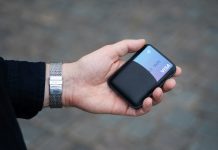The Consumer Financial Protection Bureau (CFPB) has fined Bank of America $100m for allegedly botching the disbursement of state unemployment benefits at the height of the pandemic.
It claimed that Bank of America automatically and unlawfully froze people’s accounts with a faulty fraud detection program and then gave them little recourse when there was no fraud.
In a separate order, the Office of the Comptroller of the Currency (OCC) is also allegedly fining the bank $125m.
Bank of America has contracts with various state agencies to offer unemployment and other benefit payments to consumers electronically through prepaid debit cards and accounts.
Since 2011, Bank of America has had an exclusive contract with the State of California to deliver unemployment and other benefit payments to California consumers electronically through prepaid debit cards and accounts.
The CFPB stated that when the pandemic hit in early 2020, millions of consumers sought unemployment insurance benefits and among this there was a great deal of fraud attempts.
Under the Electronic Fund Transfer Act, consumers are protected when they use electronic methods to transfer money. Protections include that after a consumer contacts the financial institution that there has been an error, the financial institution must conduct a prompt, reasonable, and timely investigation.
In its investigation, the CFPB claimed that it found that the Bank of America engaged in unfair and abusive acts and practices that resulted in Californians not getting their unemployment benefits at the height of the pandemic.
It alleges the bank had replaced reasonable investigations with a faulty fraud filter. It said the fraud filter used a simple set of flags that automatically triggered an account freeze. With the low bar to freeze the unemployment insurance benefits of many people, harming thousands of legitimate cardholders needing the money.
The CFPB also claims the bank left distressed consumers in the lurch. It stated that the bank made it tough for people to unfreeze their prepaid debit cards or for people to report fraudulent use of their cards. People with unemployment insurance benefit prepaid debit cards could not make reports online or in-person.
It claimed that people were on hold for hours every day for weeks trying to speak to someone at the bank. The bank also claimed to have agents available 24/7 but they operated a limited schedule for its claim call centre.
Finally, the CFPB claims the bank “passed the buck to an overwhelmed state agency.” It stated that when consumers sought assistance, the bank allegedly sent them back to the California state unemployment department for verification in order to regain access to their benefits.
As part of the fine, Bank of America must pay back the money they wrongly denied to consumers due to the faulty fraud filter. It also has to offer a consequential harm payment, which will be determined based on the extent of the financial harm consumers suffered due to the time their accounts remained frozen.
It also must pay a $100m penalty to the CFPB, which will be deposited into the victims relief fund.
CFPB Director Rohit Chopra said, “Taxpayers relied on banks to distribute needed funds to families and small businesses to rescue the economy from collapse when the pandemic hit.
“Bank of America failed to live up to its legal obligations. And when it got overwhelmed, instead of stepping up, it stepped back.”
Bank of America was designated as a global systemically important bank by the Financial Stability Board, and as of December 31, 2021, the company had $2.5trn in consolidated assets.
It was previously ordered by the CFPB in 2014 to pay $727m in redress to its victims for illegal credit card practices.
Copyright © 2022 RegTech Analyst
Copyright © 2018 RegTech Analyst






